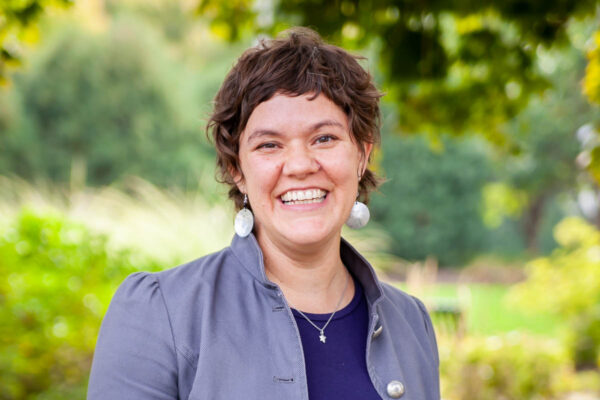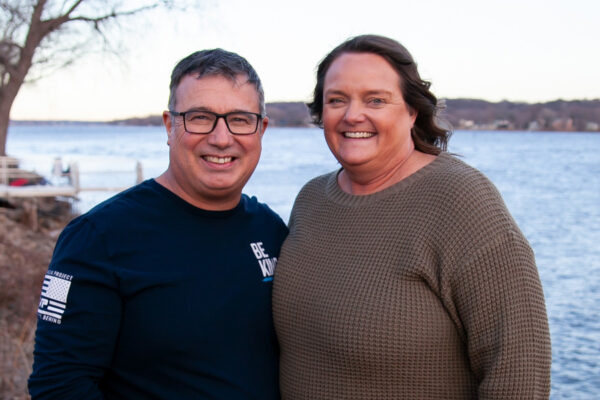Faith: In their own words
Written by Anna Thorne
Sorry. It’s a word that is used to apologize for a mistake, a misinterpretation, an emotional outburst, or when someone accidentally bumps into you. It is a common word used in everyday vernacular, and for most people, it is not a word that prompts more than a two-second thought. For me, it means much more than that.
I was so unsure of how to go about expressing years of faith and years of emotion into one story. Putting everything I’ve ever felt and every struggle I’ve failed to talk about into words felt impossible. I didn’t even know where to begin.
I met with Andy Langdon and Haley Rhoads to talk about just that, and through a two-hour emotional conversation, I realized I didn’t necessarily need to find the “right” words because, as they emphasized to me, any words that have meaning to me are sufficient.
All of my life I have been the textbook definition of a people pleaser. Living for others can be a complicated thing. For me it means that I always choose others over myself, often to my own detriment.
I could never get past this feeling deep inside me that my only good quality was my kindness. To no fault of my twin brother Alex, I had always felt like the background twin. Living every moment of life with someone who is as intelligent, hilarious, bold, and outgoing as him was hard for me. Alex was always the first one to be invited to the big social gatherings and the one that made everyone laugh. In comparison, it felt as though what I had to offer wasn’t enough.
I was obsessed with remaining true to the one good quality I knew everyone around me saw: my kindness. When someone would ask for help, I would drop everything to give it to them. When someone was upset and needed advice, I would console them, regardless of how I was feeling. I gave my all to others to the point where I had nothing left for myself.
When I was struggling and felt as if I had no one around me, I didn’t tell anyone. I had to be the happy, bubbly, sweet person that everyone knew me as. I found every ounce of validation in the way others perceived me. If I wavered from the person everyone thought I was, who would I be? This mentality caused me to confuse the true definition of kindness. It became my weakness, and that weakness created an image of myself that was a stranger to the person I wanted to be.
I mentioned the word “sorry” because it is a polite, kind gesture to let someone know you recognize a mistake and take responsibility for it.
Sorry became the most used word in my vocabulary. To remain kind, I apologized for every mistake. I aimed to please others and end “conflict” by saying sorry. It became what felt like an apology for simply existing.
When high school youth group began, I was the epitome of the person I just described. This realization came during Summer Stretch. I met and bonded with many impactful people during that week of church, but two people stuck out to me. The second I saw the ways in which Mary Baril and Ellie Lindmark immersed themselves in the church, I knew I had been blessed with something special.
That was the first time I had seen two people be unapologetically themselves. They were true to themselves, and when I saw the positive reassurance they got from the church when they didn’t try to be anything but genuine, that was the first time I saw the chance for me to do the same. They showed me the value in surrounding yourself with people that lift you up, and the value in finding a community that does not ever make you feel as though you aren’t worthy.
As the years went on and I continued to involve myself in church, I started to see the person I had been hiding for so long. When I went through struggles in my friendships and I dealt with people taking advantage of my kindness, I remembered that I was in control of who I surrounded myself with.
When quarantine hit and everything that had been distracting me from my own struggles was suddenly gone, I fell into darkness. I was torn between losing who I was and also trying to be the support for everyone else who was struggling.
Eventually, it became too much for me to handle. I broke, and I was at the lowest of lows. I continued to tell no one that I was struggling because when everything in my life felt out of control, the one thing I could control was the version of myself that I let people see. It wasn’t until I started immersing myself in church again that I separated myself from this toxic way of living.
When I thought about who I was when I was at youth group, I realized that the one person I never needed to apologize to was God. When I remembered every embrace, every smile, and every laugh I shared with the people at this church, I felt a wave of relief fall over me. It was a realization that was long overdue.
Although leaving and not being able to see all of the incredible people every Sunday will be my hardest goodbye, it was also my most important hello. The day that I made this church and these bonds my priority was the day that I was no longer a stranger to myself, and the day that I finally felt enough peace to let God take control. It was the day that I realized I didn’t need to apologize for who I was. I will never be just the kind girl to God.
Written by Owen Schmidt
My family is one that comes to church when we can, but if something would conflict we would pick that event over coming. We would listen to The Message or K-Love while driving and call that enough. Because of that upbringing I would say I had a strong faith life but I never felt fully connected to God. When I compared it to others I felt like it could be stronger.
I was in the second half of my junior year when Bettendorf went fully online, soccer got canceled, and Sunday Night Live (SNL) got suspended before going online. It took me a while to adjust but I made it through the summer with the help of service projects and 678 week but I could feel my faith weakening. I went to SNL once school started again but it wasn’t my top priority anymore.
Then on September 28th I tested positive for COVID-19 and the next two weeks were the worst ones of my life.
After those weeks of physical symptoms my connection to God was the lowest it will ever be and I thought my experience with COVID couldn’t get any worse. I was wrong about both. The physical symptoms had been going away but one symptom remained — brain fog. The symptoms include fatigue, short term memory loss, lack of concentration, and slower processing speeds along with other brain-related problems.
During the time I needed God the most, I rejected him. I decided to go at the biggest challenge of my life alone. I didn’t tell my parents, my sister, or my friends what I was going through.
After a few weeks, my brain function started to come back but my faith didn’t.
Faith wasn’t in my life but then I received a text from Andy (Langdon). “Wanted you to know that SNL starts again this Sunday. Some fun games, good conversation, and a little bit of worship. Hope you can make it!”
I responded, “I will be there.” Only four words but those four words were a start.
Then I was at home alone one night when I remembered Andy had said he needed volunteers to paint the youth room. I could have done something with my friends or watched TV, but for the first time in a long time, I chose the St. Paul community.
My initial motivations might not have been ideal but I enjoyed that day so much that I got up early the next day to do it all again. That weekend, in combination with Andy reaching out all those times and the other great people at SNL, brought me back to my faith.
Since then I have been prioritizing my faith and my faith has been building back up. One thing I know is that my faith is the strongest it’s ever been because for the first time I have made it my own.




